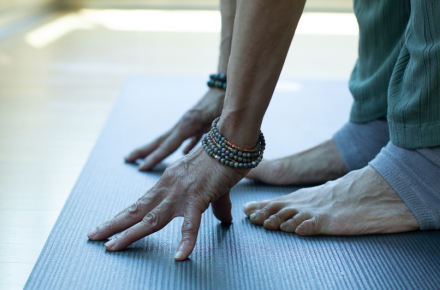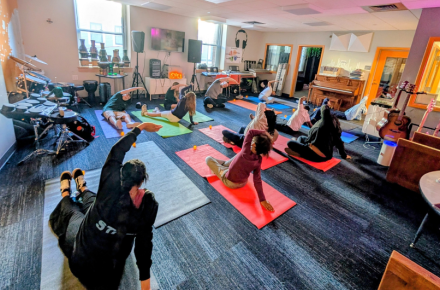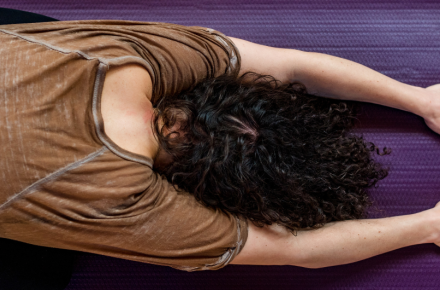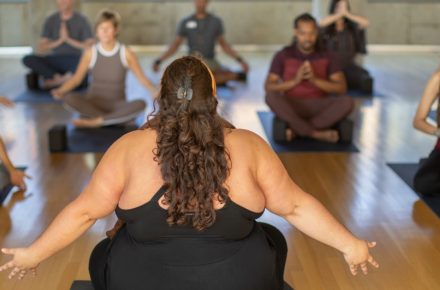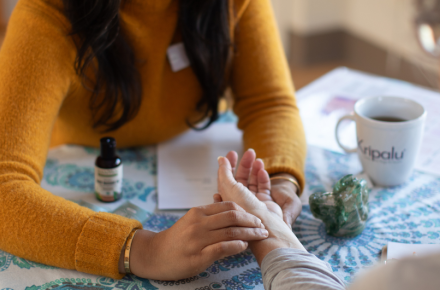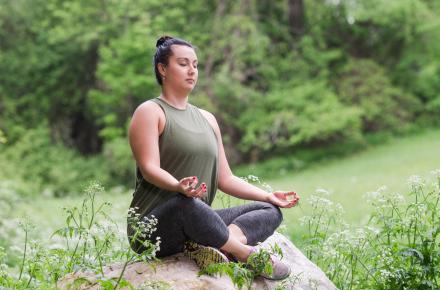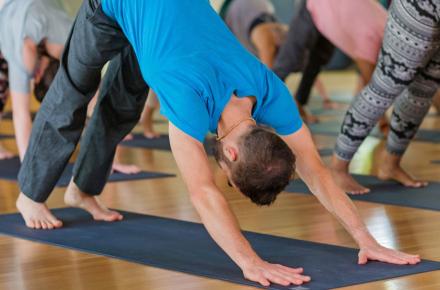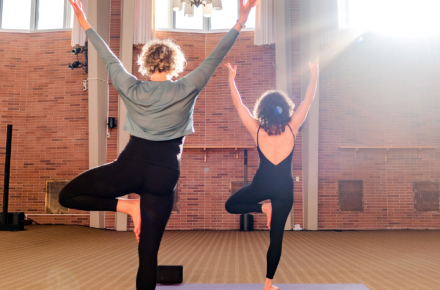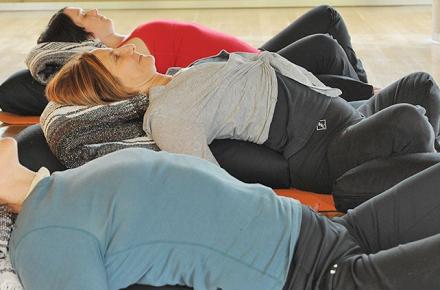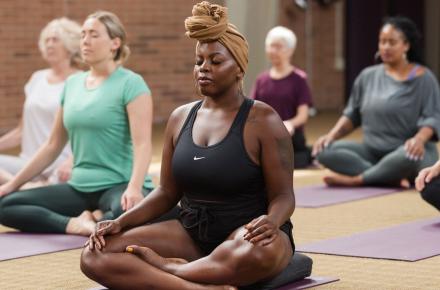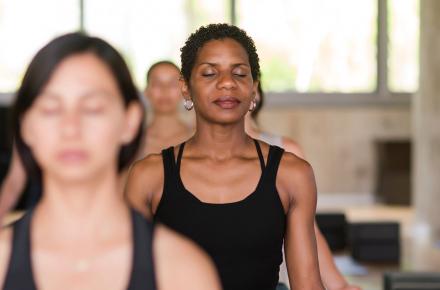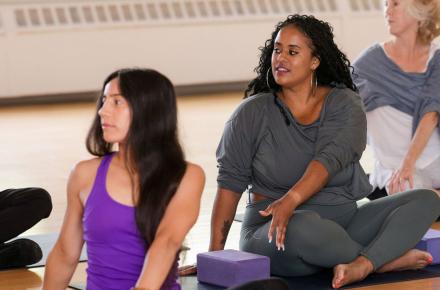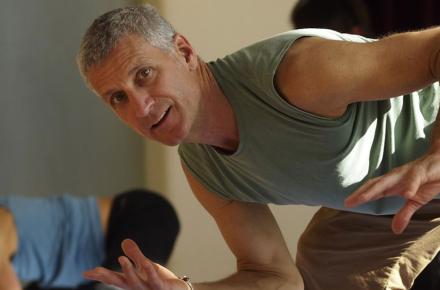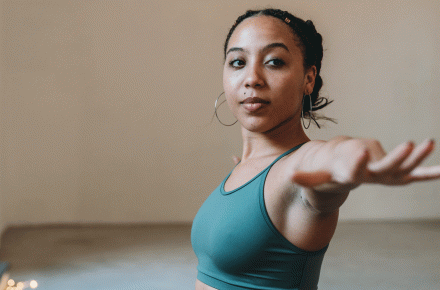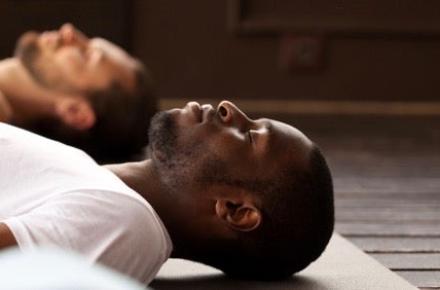Compassion and the Path of Self-Study
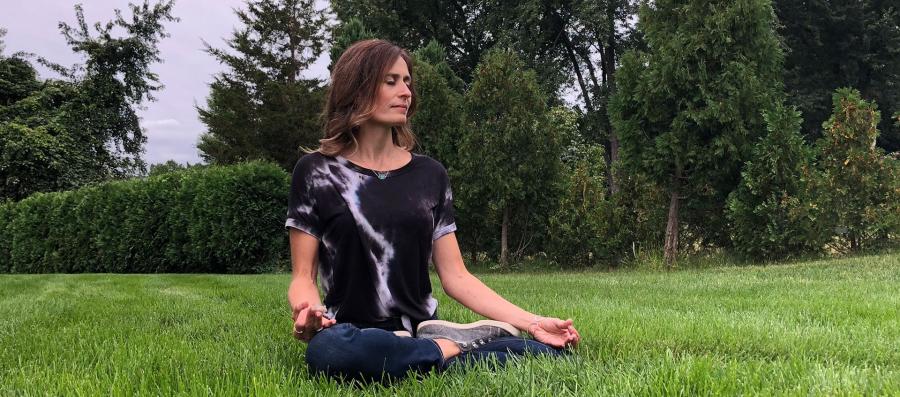
by Ilana Beigel
Merriam-Webster dictionary defines compassion as “sympathetic consciousness of others' distress together with a desire to alleviate it.”
When I extend this definition to self-compassion, I think about the ability to be sympathetically conscious of yourself and your inner world—to see and allow your own distress—and, maybe most importantly, to have a desire to alleviate it.
For most of us, none of this is simple or happens automatically. To be sympathetic toward yourself, to have consciousness of your “inner anatomy,” takes work, reflection, and self-study.
The ability to develop witness consciousness (to observe the activity of the mind without judgment) is at the core of Kripalu Yoga practice. One of Swami Kripalu’s most well-known quotes is “The highest spiritual practice is self-observation without judgment.”
I have been practicing Kripalu Yoga for more than 21 years, and am now honored and privileged to be a teacher of Kripalu Vinyasa. I am a “forever student”—I love to dive deep into whatever is lighting me up at the moment. There is one thing, though, that is a constant source of inspiration for learning: myself.
One of the reasons I practice yoga (on and off the mat) is for svadhyaya (self-study). I have found the curriculum for this topic to be infinite. I now feel quite confident in my ability to be sympathetically conscious of myself; I am intimately familiar with my distress. I know when I am triggered. I know what it feels and looks like in my body, what thoughts might be swirling around my head, what words might be coming out of my mouth.
But what do I do with this knowledge? And, maybe most importantly, given the working definition of self-compassion, do I want to do anything about it? Do I have the desire to alleviate it?
It might seem counterintuitive. Why would I want to hold on to distress—to the feelings, the thoughts, the words, the actions that do not serve me or connect me to my highest self?
It might have something to do with the concept of vikalpas, a Sanskrit word that literally translates as “imagination” or “illusion”—a destructive pattern or mental construct that separates you from your highest self and goes against your soul’s inherent desire to thrive. You might think of it as the opposite of or hijacker of your sankalpas, or intentions.
While vikalpas have a relatively apparent and obvious cost, it is their more subtle payoffs that give them fortitude and make them so difficult to change and break free from. Despite having a cost, they are comfortable. They are familiar.
Does this sound familiar? I invite you to be in the inquiry of vikalpa. You might consider:
- What thought or behavior gets in the way of my ability to alleviate my distress?
- What am I gaining from this thought or behavior?
- What positive, constructive intention (thought/behavior) can serve as a replacement?
- How can I strengthen my will to alleviate my distress so it is stronger than my desire to stay comfortable?
The syllabus for svadhyaya is limitless. You might think of it as a “choose your own adventure” story. As you travel along your lifelong path—of self-study, of yoga, of compassion towards yourself and others—I hope these wise words from my teacher Coby Kozlowski will provide you with a foundation of comfort and curiosity:
"Everything is perfect right now AND a new and different perfection is always available. There is always more to come."
Ilana Beigel is a Kripalu Yoga educator, life coach, and speech-language pathologist based in the Pioneer Valley of Massachusetts. ilanab.com











